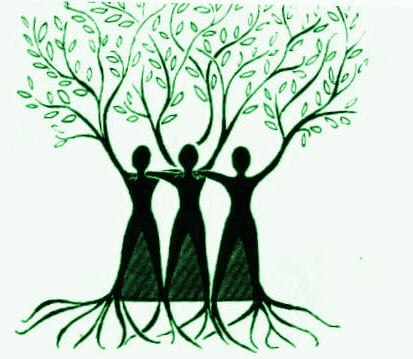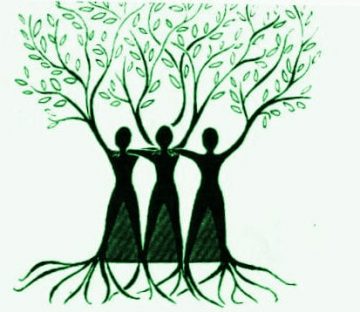
by mraynes
A few weeks ago I was asked to give a presentation to colleagues and members of the community about the ideology of empowerment. Empowerment is my primary job description so I can give a presentation about the subject with my eyes closed. Although it is an easy subject for me to discuss, truth be told, I feel that the concept of empowerment in American society is a cop out. Although I believe that the individual must be an integral part, and even the impetus for positive change, they are only one part of reaching true empowerment. An individual can change all they want but if they don’t have the structures and support to back them up that change means very little.
When asked what “empowerment” means, most people will say that it is an individual making choices that will improve their life. An empowered person will pull themselves up by their bootstraps; they work hard and persevere and then are rewarded for it. Meritocracy is, after all, the bedrock of the American dream and our concept of national progress. But when the modern idea of empowerment was first emerging in the late 1960’s, it was a response by feminists who were frustrated with the male-centric, establishment public policy being enacted world-wide. “Women’s Empowerment” was a transformational idea that challenged the existing structures of patriarchy as well as race and social class.
The empowerment movement was supposed to challenge the ideologies that justified social inequality and transform the structures that reinforced that inequality. This was a very popular theoretical exercise among feminists and much of the 2nd Wave literature addressed these issues. Feminists, however, are not a monolithic body and so there was no clear definition or agreed upon public policy platform to push those transformations forward. This allowed the word and its ideology to be usurped from its original purpose of systematic change to the idea we recognize today of individual power, achievement and status. The power in empowerment was effectively neutralized and the deep power changes that needed to take place in gender
relations and other social hierarchies never occurred.
This brings me back to why I was uncomfortable giving a presentation about empowerment; the empowerment model we have today does not work! When I first started counseling domestic violence victims the path to empowerment was pretty clear cut. Clients would get a job and then they would get housing, we would throw in a little counseling for good measure, teach them how to be assertive and how to make healthy relationship choices and call it a success. And our model was successful, 80% of our clients went down some variation of the path I mentioned before…until the empowerment model failed.
Like so many other subsets of our society, when the bubble burst and the economy crashed, the reality that remained was so much uglier than any of us could have imagined. Our successful empowerment model had only masked a deeply flawed and pernicious system of structural and relational inequality. Those of us in advocacy saw in even sharper contrast just how
disempowering our society is. For example, Arizona recently cut their subsidized daycare program making it impossible for low-income women to work and take care of their children. For women like my clients, their inability to work makes it impossible for them to obtain housing. Their options are to go from shelter to shelter, exist on the charity of friends and
family or go back to their abusers. On top of this, the legislature cut emergency cash assistance by 20%, making it even harder for mothers to stretch their already paltry income to cover the living expenses of their families. It is pretty hard to feel empowered when you’re worried about how your going to feed your children.
I understand why the Arizona State Legislature cut these programs; women who take from the system go against all of those notions of self-reliance we hold so dear. It is easy to see them as milking the system and the vitriol in which “welfare moms” are spoken with only further proves how deeply ingrained the meritocracy in our society is. My clients are literally on the margins of society and their needs are easily ignored or dismissed out of fear of “enabling”. I don’t believe that people who have power are mean-spirited, I just think they don’t know…they can’t see the human face of disempowerment.
I understand this because I too once believed that people on the margins either didn’t exist or were there because of their own failings. It was not until I started working in the margins that I realized in order for them to escape, it must be society who changes. I can assure you, as someone working on the front lines, that the women I work with are striving and fighting with everything they have to empower themselves. They work hard to provide a better, safer life for themselves and their children, but they cannot achieve true empowerment without systematic change to every power institution in this country. So let me suggest a starting point, bring the margins to the center. Give domestic violence victims, undocumented immigrants, homosexuals, racial minorities and all women a human face. Make the individual more than just a number, more than a nebulous concept with a need. The powerful will not give up their power easily but at least they won’t be able to ignore the problem…And that is half the battle.






9 Responses
I am on vacation in New Mexico with very spotty internet access so please forgive me if I’m a little absent. I will do my best to respond to your comments it may just take me awhile. Also, I forgot to mention that my title is taken from the seminal work of bell hooks, you should definately go look it up.
I particularly like your last paragraph.
You know, that’s one of the things I most appreciate about the institution of visiting teaching. Again and again over the years it has put me in places where I’ve been visiting with or working in partnership with domestic violence victims, undocumented immigrants, single moms, gays and lesbians and women from all sorts of disadvantaged walks of life as well as the comfortable ones.
Granted, such experiences are more likely in visiting teaching when your ward or branch covers a larger geographic area, bringing together neighborhoods and that otherwise might stay apart from each other. That’s something I love about my church.
So yes, it’s a lot harder to think of the unempowered as a nebulous group when one if them is a sister you know and care about. And the practical application of the gospel puts us in places where we see that, and are then more motivated to join the battle you write about. I appreciate that.
I’m glad that you told of your transformation as you went from being unaware of the margins to working in them. I weep when I think of how easy it is to dismiss these “marginal” women.
I was speaking to my grandma the other day about food stamps and how I thought it was a good program. Of course, she was shocked. She said “Oh, that’s welfare!” like it was one of the dirtiest words. I cringe when things like this happen. What must be like to need help and not have enough to make do? These women deserve our respect, even if we don’t know them personally.
Thank you for your thoughtful and intelligent words. In my advocacy work for disabled persons, I have found repeatedly that putting human faces on the persons in need makes it much more difficult for someone in power to just shrug them off. Your comments about the definition of empowerment are right on the mark too.
Thank you.
I love your thoughts on this, mraynes.
One thing I find frustrating is the exceptionalism (?). That is to say that, you present one person’s story to a group in order to put a human face on the situation, and people feel genuine sympathy for that one person, but see them as an exception to the rule. You know “Oh but that’s different. She got pregnant before her husband left her. She’s not like those other welfare moms who get pregnant on purpose.” etc etc. It can be hard to communicate that everyone is an ‘exception’ somehow.
I think Starfoxy’s got a good point. It takes more than just one human face. People who are comfortable build psychological barriers to their ability to make sacrifices in the name of compassion. Often it is based on fear. “If those people brought it on themselves, then I can avoid troubles myself just by not doing certain things”, they unconsciously think. For such individuals, even a dozen human faces will not be enough to move them beyond thinking that there are a dozen exceptions.
We need to teach the nobility of sacrifice and compassion for those they deem as “worthy” as well as those they deem “unworthy” when we are dealing with people who are hiding behind their defensive barriers.
As they respond to that and act accordingly they are more likely to put themselves closer to a position where they can see more human faces, and get past their fears and off their high horses.
I often wonder if I suffered from exceptionalism before my mission and my move to teach in inner city Florida and New York City. Perhaps it wasn’t even exceptionalism as much as ignorance. I was then thrown into situations where I everyone had a face. These women and children had faces. The 9th grader going into labor during my English class had a face, my neighbor being abused by her husband had a face. I wonder if so many people are unabled to get the empowerment because many of us live in little faceless boxes of perfection. I live in a town like that now, one where every thing is seen with rose colored glasses for the most part. I think empowerment comes by being empowered and letting others be empowered in your presence.
Great post.
Thank you for this poignant post.
The Law of the Harvest ethic is so strong in Mormon culture. And I think it can be a beneficial motiator, up to a point. However, this assumes that everyone starts on a level playing field, which is hardly the case.
Personally, I make a concious effort to put a familiar face on everything. When it comes to issues like universal healthcare, or polygamy, I ask myself how would I like my sister or children to be treated. Would I tell my sister that she i just being selfish for not wanting to be in a polygamous celstial marriage? Would I refuse healthcare to my children or grandchildren? I have a hard time believing that anyone could be as callous to their near and dear ones, as they are to the faceless multitudes.